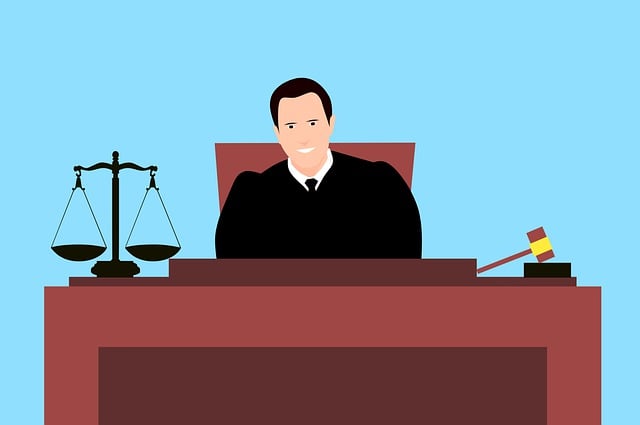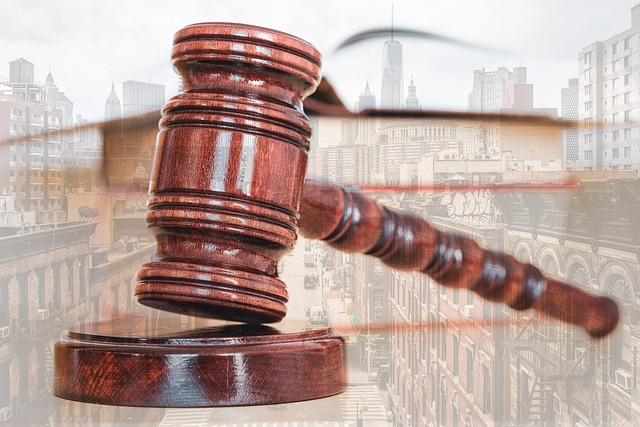In criminal law, understanding the distinction between plea bargains and trials is crucial for effective litigation risk management. Plea bargains offer a quicker resolution with reduced sentencing or dropped charges, while trials provide a thorough examination of evidence but are lengthier and more expensive. This balance allows defendants (individuals and corporations) to strategize based on case complexity: negotiating plea bargains for less severe offenses to save time and money, or proceeding to trial for complex cases to clear names and achieve better outcomes. The decision impacts not only legal costs and sentence lengths but also reputation management and future employment prospects.
In the intricate dance of criminal law, managing litigation risk is paramount. This article navigates the delicate balance between plea bargains and trials, offering insights into their respective strategies and outcomes. We explore how understanding criminal cases’ defining factors shapes decisions, with a focus on potential risks and rewards. By delving into these dynamics, we provide best practices for effective litigation risk management, equipping professionals to make informed choices in navigating complex legal landscapes. Discover the strategic advantages of both plea bargains and trials, and gain a comprehensive perspective on managing criminal law cases.
- Understanding Litigation Risk: Defining Criminal Law Cases
- The Plea Bargain Process: Strategies and Benefits
- Advantages of Going to Trial: A Defendant's Perspective
- Evaluating Potential Outcomes: Weighing Risks and Rewards
- Best Practices for Effective Litigation Risk Management
Understanding Litigation Risk: Defining Criminal Law Cases

In the realm of litigation risk management, understanding the nuances of criminal law cases is paramount. A key aspect to grasp is the distinction between a plea bargain and a trial. These two pathways significantly influence the outcome for both prosecutors and defendants. A plea bargain, often considered a strategic move by legal representatives for their clients, involves an agreement where the accused pleads guilty to a lesser charge in exchange for a reduced sentence or dropped charges. This approach can be beneficial for the respective business interests of both parties, as it allows for quicker resolution and potential cost savings.
On the other hand, going to trial presents a different landscape. It is a public display where evidence is presented, arguments are made, and a jury or judge decides the verdict. While this process ensures a thorough examination of facts and legal arguments, it can be lengthy and expensive. The outcome can range from acquittal to conviction, with potential consequences varying widely based on the nature of the crime. This dynamic between plea bargain vs. trial underscores the complex interplay of justice, strategic decision-making, and risk management in criminal law cases.
The Plea Bargain Process: Strategies and Benefits

The plea bargain process is a strategic element in criminal law that offers both advantages and considerations for all parties involved—from prosecutors to respective business, corporate, and individual clients. It provides an alternative to the traditional Plea Bargain Vs Trial scenario, allowing for potential benefits such as reduced sentences, dismissed charges, or more favorable outcomes. By negotiating a plea agreement, defendants can avoid indictment and its associated public scrutiny, which may be beneficial for their personal and professional reputational preservation.
This strategic approach empowers prosecutors to focus resources on cases they believe require a trial, while diverting time and energy towards negotiations for less severe offenses. For corporate clients facing legal repercussions, this process enables them to mitigate risks, minimize damage to their public image, and ensure business continuity. By employing well-calculated plea bargain strategies, defendants and their legal representatives can navigate the criminal justice system more effectively, ultimately leading to better outcomes in terms of fines, community service, or other alternatives to incarceration.
Advantages of Going to Trial: A Defendant's Perspective

While many defendants opt for plea bargains due to the potential consequences of a trial, there are distinct advantages to taking a case to court from the defendant’s perspective. One of the primary benefits is the preservation of a clean record. In many jurisdictions, a guilty plea can result in a criminal record, which may have lasting implications for future employment and personal opportunities. Going to trial allows defendants to clear their names and avoid the stigma associated with a criminal conviction.
Additionally, trials offer a platform for defendants to present their side of the story and challenge the prosecution’s case. This is particularly important in white-collar defense cases where complex financial transactions and nuances in legal interpretation play a significant role. For corporate and individual clients facing high-stakes cases, a trial can provide an opportunity to expose weaknesses in the prosecution’s evidence and potentially reduce or even eliminate liabilities, ensuring a more favorable outcome than what might be achievable through a plea bargain.
Evaluating Potential Outcomes: Weighing Risks and Rewards

In criminal law, evaluating potential outcomes is a critical aspect of litigation risk management. When facing high-stakes cases, whether it’s a plea bargain or proceeding to jury trials, understanding the risks and rewards is paramount for legal strategists. The decision between accepting a plea bargain or going to trial involves a delicate balance. Plea bargains offer a chance to mitigate potential damages by securing a guilty plea with a negotiated sentence, which can be particularly beneficial in complex cases where the evidence may not clearly support a conviction at trial.
On the other hand, jury trials provide an opportunity for both sides to present their cases fully and allow a group of citizens to determine guilt or innocence. This process ensures a transparent evaluation of the evidence and arguments presented throughout all stages of the investigative and enforcement process. While jury trials can lead to more unpredictable outcomes, they also uphold the principle of a fair trial—a cornerstone of any just legal system. Thus, the choice between a plea bargain and trial depends on weighing the potential risks against the rewards in each specific case.
Best Practices for Effective Litigation Risk Management

In the realm of litigation risk management, a strategic approach is essential to navigate complex legal landscapes, especially in criminal law. One key practice involves understanding the nuances of plea bargains versus trials. This decision significantly impacts outcomes for both corporate and individual clients facing charges, particularly in white-collar and economic crimes cases. By evaluating the risks and potential consequences of each path, legal teams can craft effective strategies to avoid indictment and mitigate damage to reputations and financial stability.
A best practice is to assess the strength of the evidence early on, considering the likelihood of a successful prosecution. For less severe offenses or those with limited evidence, negotiating a plea bargain may be advantageous. This approach allows for quicker resolution, potentially reducing legal fees and the impact on the client’s operations. In contrast, for more complex cases where the evidence is substantial, proceeding to trial might be more suitable. This strategy showcases a robust defense, aiming to clear the client’s name and deter future prosecutions. Effective litigation risk management thus involves tailoring these strategies to the unique circumstances of each case.
In managing litigation risk, understanding the nuances of criminal law cases, recognizing the plea bargain process as a strategic tool, and evaluating potential outcomes are key. While going to trial offers advantages for defendants, navigating the complexities of the legal system through plea bargains can also yield significant benefits. By adopting best practices, attorneys can effectively balance risks and rewards, ensuring the best possible outcome for their clients in the often-unpredictable landscape of Plea Bargain Vs Trial in criminal law.






